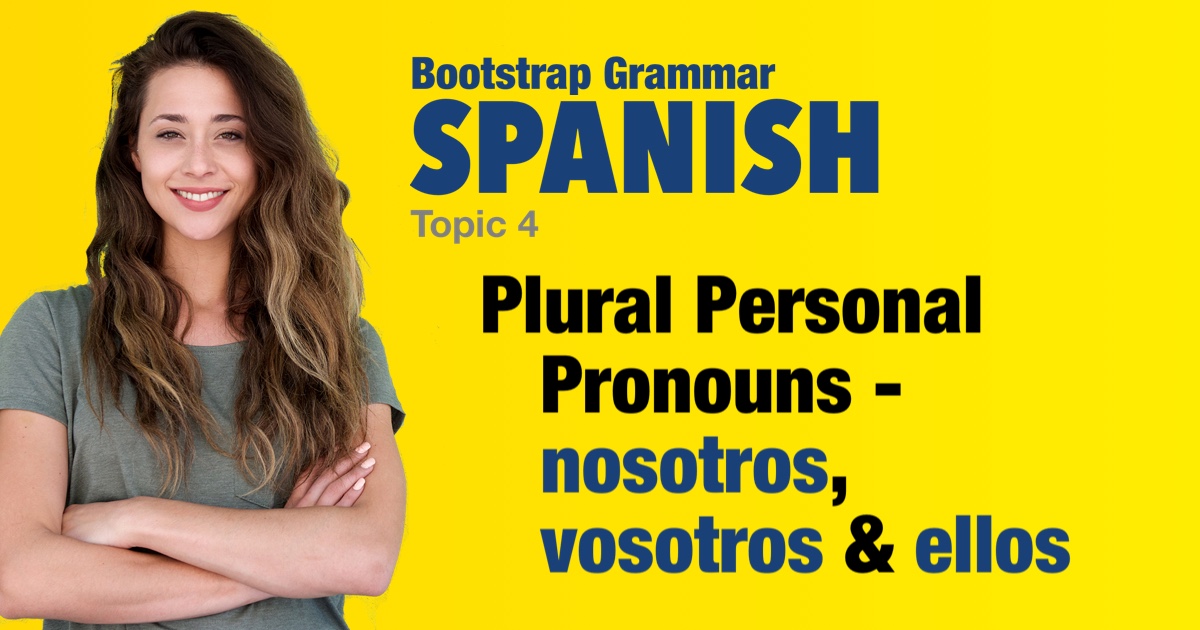Spanish grammar - Plural Personal Pronouns - nosotros, vosotros and ellos |
|||
|
|||
In this topic we cover the plural pronouns. In Spanish there is a distiction between masculine and feminine plural pronouns. Here we introduce the masculine ones. The feminine plural pronouns are covered in the next topic. Note also that Spanish has a special plural 'you' form - vosotros - as in 'y§all', 'you guys' - a group of people being addressed. The masculine plural pronouns and their estar conjugations are as follows: • nosotros estamos - 'we are' • vosotros estáis - 'you (plural) are' • ellos están - 'they are' The masculine plural pronouns and their ser conjugations are as follows: • nosotros somos - 'we are' • vosotros sois - 'you (plural) are' • ellos son - 'they are' |
| Examples: | |
|
nosotros estamos
we are (temporary)
|
|
|
vosotros estáis
you (plural) are *OR* 'you guys' are (temporary)
|
|
|
ellos están
they are (temporary)
|
|
|
Nosotros no estamos aquí.
We are not here. |
|
|
Ellos no están aquí.
They are not here. |
|
|
María y José no están lejos. Ellos están cerca.
María and José are not far away. They are close by. |
|
|
Nosotros estamos de acuerdo.
We agree. |
|
|
Ellos no están de acuerdo.
They do not agree. |
|
|
nosotros somos
we are (permanent)
|
|
|
vosotros sois
you (plural) are (permanent)
|
|
|
ellos son
they are (permanent)
|
|
|
Nosotros somos españoles.
We are Spanish.
|
|
|
Ellos no son estadounidenses.
They are not American.
|
|
|
Vosotros sois amables.
You (plural) are kind. |
|
|
Ellos son felices.
They are happy. |
|
 |
|


 estar ⇒ (nosotros) estamos
estar ⇒ (nosotros) estamos
